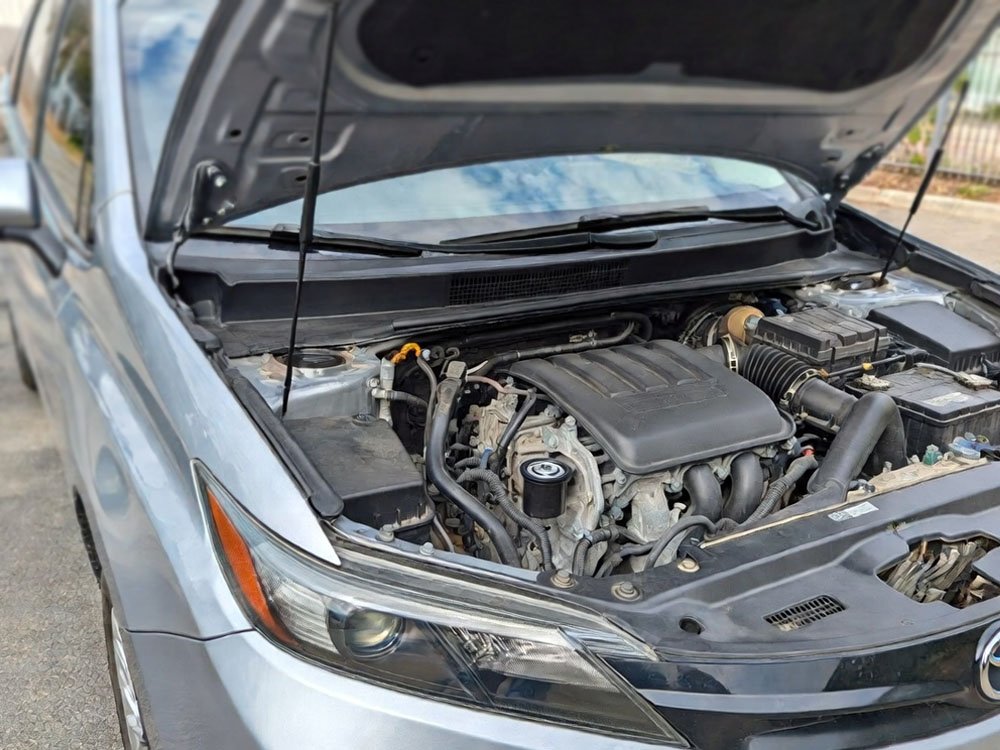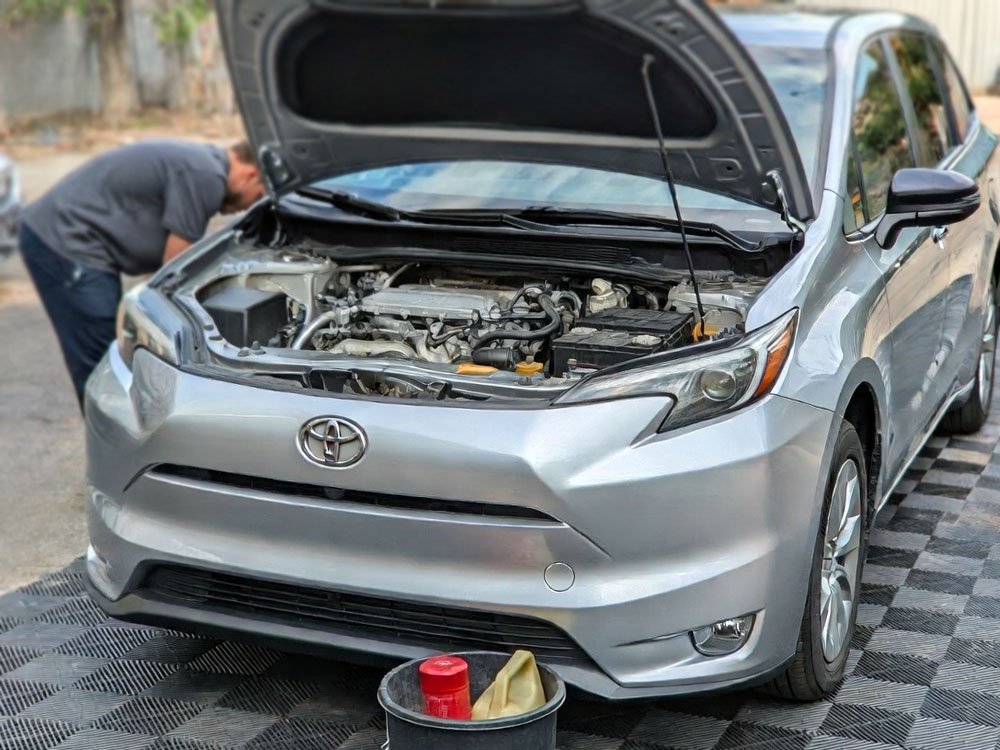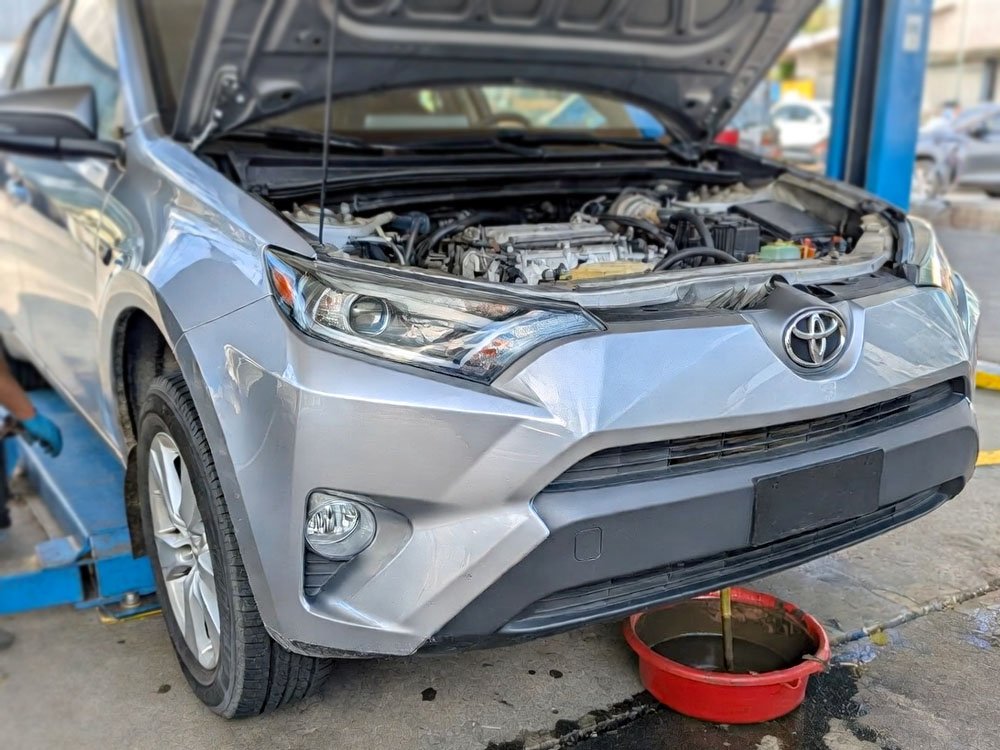As an Amazon Associate, I earn from qualifying purchases at no extra cost to you.
How to Tell if Car Battery is Bad (Expert Guide)
Ever had that heart-sinking moment when you turn the key, and your car just won't start? It usually happens at the worst time, like rushing to work or picking up the kids. Most of the time, it's not the engine—it's your battery quietly dying. The tricky part is, batteries don't always show obvious signs until they're nearly dead. Knowing the warning signs early can save you from a huge headache. Let's dive into how to tell if your car battery is bad so you're never caught off guard.
Key Takeaways: To check if your battery is failing, watch for slow engine cranking, flickering lights, corrosion on terminals, a swollen or leaking battery, a strong rotten egg smell, and if your car often needs a jump-start. You can test voltage with a multimeter, observe electrical performance, and even get a professional check for peace of mind. Regular maintenance, cleaning terminals, and avoiding leaving electronics on also help your battery last longer.
Signs Your Car Battery is Struggling
One of the first clues your battery is failing is how your car starts. If turning the key makes the engine crank slowly or struggle to start, it's often a sign the battery can't hold enough charge. Sometimes you'll hear a clicking noise instead of the engine turning over—that's another warning. Batteries lose their strength over time, so even if it starts eventually, it could be near the end of its life.
Another subtle sign is dimming or flickering lights. Headlights may appear weaker at night, or the dashboard lights might flicker when you turn on the AC or radio. These fluctuations happen because the battery can't supply consistent power. Electrical components like power windows or infotainment systems may also behave oddly, especially when idling.
Even physical signs on the battery itself are important. Check the terminals for white or greenish corrosion, which can block proper power flow. Also, look for any swelling or bulging in the battery case, which can indicate internal damage. Some batteries even leak fluid, and that's a serious problem that requires immediate attention.
- Slow engine crank or clicking when starting
- Dim or flickering lights
- Corrosion on terminals
- Swollen or leaking battery
How to Test Your Battery at Home
Testing your battery at home is easier than most people think. The first tool you need is a multimeter, which measures voltage. A fully charged battery should read about 12.6 volts when the car is off. Anything below 12.4 volts might indicate the battery is weak. Turn off all electronics before testing to get an accurate reading.
You can also perform a simple load test. Turn on headlights and try starting the car. If the lights dim significantly or the engine struggles more than usual, your battery is likely losing its power. Always wear gloves and glasses to avoid contact with battery acid. Never touch both terminals at the same time with metal objects—it can create sparks or short circuits.
Even without a multimeter, observing how your car behaves can help. If you notice consistent slow starts or need jump-starts frequently, it's probably time to either charge or replace the battery. Regular checks once a month can save you from sudden breakdowns.
- Use a multimeter to check voltage (12.6V is full charge)
- Observe dimming lights or slow starts during load test
- Always practice safety when handling the battery
When to Seek Professional Help
Sometimes DIY checks aren't enough. Professionals have tools like battery testers and hydrometers that can precisely measure the battery's health. They can determine if it can still hold a charge or needs immediate replacement. Mechanics also check for underlying issues like a failing alternator that can drain your battery even if it seems fine.
Professional inspections are quick and prevent surprises. If you're not confident testing voltage or observing signs yourself, a mechanic can do a thorough check and offer advice on whether to recharge or replace the battery. They also ensure proper disposal of old batteries, which is important for safety and the environment.
Visiting a professional is especially smart before extreme weather. Cold winters or scorching summers stress batteries, and a test can prevent getting stranded. Some garages even offer free battery checks, so you can know your battery's condition without spending much.
- Mechanics use testers and hydrometers for precise checks
- Professionals can spot alternator or charging system issues
- Recommended before extreme weather or if unsure about DIY checks
Common Causes of Battery Problems
Battery failure doesn't always happen overnight. Age is a major factor—most car batteries last 3–5 years. If your battery is approaching that age, it's more prone to dying suddenly. Extreme temperatures also stress the battery; heat speeds up chemical reactions inside, while cold reduces power output.
Another frequent cause is human error, like leaving headlights or interior electronics on when the car isn't running. Loose or corroded connections can prevent proper charging even if the battery itself is fine. Sometimes, the alternator might not charge the battery efficiently, which slowly drains power without obvious signs.
Understanding why your battery struggles helps prevent problems. Regular inspection, cleaning terminals, and avoiding unnecessary electrical use extend the battery's life. Knowing your battery's weaknesses allows you to catch issues before they become emergencies.
- Old age (3–5 years lifespan)
- Extreme hot or cold weather
- Leaving electronics on when engine off
- Loose or corroded terminals
Battery Maintenance Tips for Longevity
Maintaining your battery is simple and can save a lot of hassle. Start by checking the terminals for corrosion at least once a month. Clean them with a mix of baking soda and water if necessary. Ensure all connections are tight; loose terminals can reduce battery efficiency.
Keep the battery clean and dry. Dirt or moisture can create a path for electrical discharge. If you don't drive often, consider using a trickle charger to keep the battery topped up. Storing a car for long periods without charging the battery is a fast way to shorten its life.
Finally, avoid short trips repeatedly, as the battery doesn't have enough time to recharge fully. Longer drives help maintain a healthy charge. Remember, simple care habits like these can make a big difference and prevent unexpected car troubles.
- Check and clean terminals regularly
- Keep battery dry and free of dirt
- Use trickle charger if car isn't driven often
- Avoid repeated short trips
Emergency Signs You Shouldn't Ignore
Some battery problems can't wait. If you smell rotten eggs, see fluid leakage, or notice a swollen battery case, these are urgent warning signs. Such conditions can lead to battery rupture or even damage other car components. Avoid driving until the battery is replaced or properly inspected.
Frequent jump-starts are another red flag. A battery that can't hold a charge safely needs replacement, even if it seems fine temporarily. Ignoring repeated signs often leads to being stranded at inconvenient times, which is stressful and sometimes costly.
Being proactive matters. Keep an eye on performance changes, noises, or smells. Early intervention saves money, prevents accidents, and ensures your car runs smoothly without unexpected stops.
- Rotten egg smell or leaking fluid
- Swollen battery case
- Frequent need for jump-starts
- Avoid driving until issue is resolved
Final Thoughts
Car batteries often fail quietly until they leave you stranded. Paying attention to subtle signs, testing regularly, and keeping up simple maintenance prevents surprises. Remember, small efforts like cleaning terminals or checking voltage make a big difference. Your car will thank you with reliable starts every time, and you'll avoid stressful emergency situations. A little care goes a long way in keeping your battery healthy and your drives smooth.
| Battery Symptom | What It Means | Action Needed |
|---|---|---|
| Slow engine crank | Weak or dying battery | Test voltage, consider replacement |
| Dim headlights | Low power output | Check battery and connections |
| Corrosion on terminals | Poor electrical flow | Clean terminals and tighten |
| Swollen battery | Internal damage | Replace immediately |
| Rotten egg smell | Acid leak | Replace battery safely |
| Frequent jump-starts | Can't hold charge | Replace battery |
| Age over 5 years | Near end of life | Test and replace if needed |
| Electrical issues | Alternator or battery problem | Inspect both battery and charging system |
Frequently Asked Questions (FAQs)
Is it normal for a car to crank slowly sometimes?
Yes, occasional slow cranking can happen, especially in cold weather. Cold reduces battery efficiency, making it harder for the engine to turn over. However, if slow cranking happens frequently, it's a sign your battery may be losing strength. Check the voltage with a multimeter and look for other signs like dim lights or corrosion to be sure. Keeping your battery charged and warm in winter can help prevent slow starts.
Can a car battery recover after dying completely?
Sometimes a battery can recover if it hasn't suffered permanent damage, especially if it was only deeply discharged. Jump-starting or charging it may restore power temporarily. However, repeated deep discharges shorten lifespan and usually indicate the battery will fail soon. If your battery struggles repeatedly, replacement is safer and more reliable than hoping it will recover fully.
Do I need professional help if my battery is over 5 years old?
It's highly recommended. While some older batteries still work, age significantly increases the risk of failure. A professional can test its capacity, check for hidden damage, and advise whether it's safer to replace it before it leaves you stranded. Early replacement can prevent unexpected breakdowns and save you from costly towing or repairs.
Is it safe to drive with a leaking battery?
No, a leaking battery is dangerous. Acid can damage your car and pose health risks. Driving with a leaking battery risks further damage and potential injury. Replace the battery immediately and handle it with protective gloves and glasses. Proper disposal at a recycling center is also necessary for safety and environmental reasons.
Can cold weather kill a battery quickly?
Yes, cold temperatures reduce a battery's chemical reactions, limiting power output. Batteries with low charge are especially vulnerable to freezing and failure in winter. Using a battery warmer, keeping the battery charged, and parking in a garage can help protect it during extreme cold.
Do I need to clean battery terminals regularly?
Absolutely. Dirt and corrosion prevent proper power flow, causing slow starts or electrical issues. Cleaning with a baking soda-water solution and tightening connections keeps the battery efficient. Regular checks, especially after winter or rainy seasons, prevent small problems from turning into big failures.
Is it normal for car electronics to behave oddly?
Occasionally, minor glitches happen, but consistent flickering lights, slow windows, or infotainment issues often indicate a weak battery. Observing these signs alongside slow starts helps confirm battery problems. Fixing connections or replacing the battery restores normal electrical performance.
Can leaving electronics on drain a battery completely?
Yes, leaving headlights, interior lights, or other electronics on while the engine is off can quickly drain the battery. Even a small drain over time weakens the battery's ability to hold a charge. Always double-check lights and devices before leaving your car, and consider a battery monitor for extra protection.











